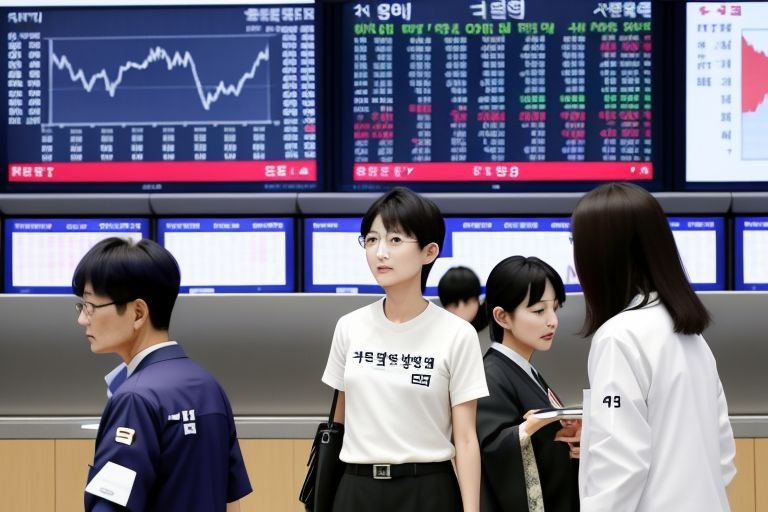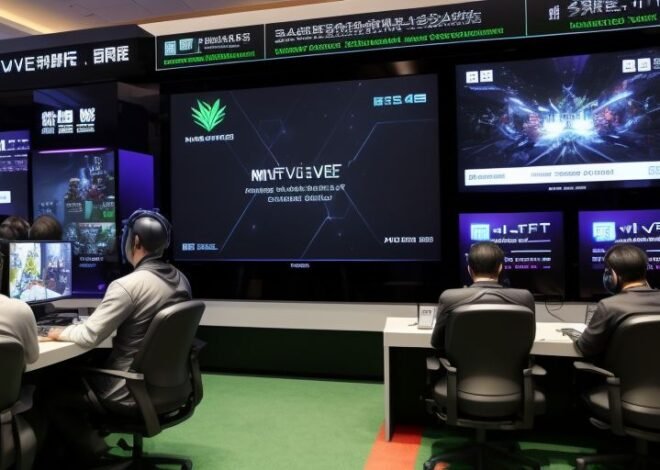
South Korean Stocks Rally on Hopes of Fed Rate Cut
Today’s KOSPI index in South Korean stocks rose by 2.3 % to 2,575.50 points. This even came as global equities gained or Asian equity markets rose due to the rally fueled by speculation that the U.S Federal Reserve is likely to cut interest rates given lower than anticipated inflation data in the United States.
People appreciated the possibility of adopting the policy of an open monetary system because it facilitates the growth of stock prices as well as economic activities. Technology shares boosted the market, Samsung Electronics – shares of the world’s largest chip maker went up by 3.2% and SK Hynix Inc, a semiconductor firm’s share ended 4.5% higher.
The sentiments were positive and crossed over to other sectors as well. Shares of carmaker Hyundai Motor rose 2.8%, and that for battery maker LG Energy Solution went up by 1.9%. The financial sector also saw a healthy rise where Korea Financial Group and Shinhan Financial Group increased its value more than 3%.
They said that Korean stocks have been sold excessively in the past few weeks due to the headwinds that include decelerating global economy and inflation. The rally today hints that markets are beginning to dismiss those concerns and focus on possibilities that may bring gains.
“Currently there is building sentiment that the Fed funds rate hiking cycle peak either is or is imminent”, Kim Seok-hwan, analyst at Mirae Asset Securities. “That is making investors get the confidence of investing in risky assets such as the shares.”
The increased trading volume was noted where over 650 million of shares traded on the main board alone. Institutional investors were net buyers buying 367 billion won ($275 million) worth of local shares. This went a long way to compensate the selling observed by domestic institutional investors.
The Korean won was also up against the US dollar, rising 0.5 percent to 1,335 won per dollar at the close of the market. The dollar was broadly stronger this year, and the currency has suffered over the course of this year so today’s rebound was good news for the traders.
Economic reports informed of a 1.1 percent drop in South Korea’s exports in the first 20 days of September yoy. This although remained negative was a much shallower decline than in the previous months. Exports such as semiconductors, one of the most important segments in the nation’s economy, reduced at a slower rate of 4.9%.
In the coming week, attention will be shifted to the Federal Reserve’s monetary policy meeting to know more about the interest rate decision. Such signs of a dovish turn could further stoke the fire of the stock market frenzy.
But, some experts emerged warning the markets are still bearish due to inflation and reducing growth rate is the Chinese economy. They warned investors to be cautious and start concentrating on industries with sound bazaars characteristics.
‘Overall, we are not clear of major economic risks yet,’ stated Park Sung-Woo of the NH Investment & Securities Co Ltd. “But for now, the mood is risk-on and that is helping the overall index.”
In the corporate news, Samsung; one of the largest players in the electronics market, announced it will spend $230 billion over the next two decades to create a mega semiconductor complex in South Korea. The grand plan is part of the strategy to entrench China as a powerhouse of the international chip manufacturing market.
On the other hand, Hyundai Motor said that it would seek electric vehicle technology partnership with the General Motors based in the United States. Analysts describe the decision as part of Hyundai’s efforts to speed up its electrification drive as restrictions on emissions grow stricter globally.
In aggregate, today’s performance indicates that South Korean stocks are indeed stabilizing after a tough year so far. The KOSPI index is still technically down about 3% year-to-date although it has risen more than 6% from its intra-year lows set in August.
Experts argued that the direction is dependent particularly on the external factors entering from the United States’ monetary policies to China’s recovery. That said, valuations for most assets have moderated following the declines registered in the recent past and some believe may still have further upside in case the mood turns upbeat.
Also, Korean stocks are considered cheap, relatively to its counterparts around the world,” said Lee Jin-woo, Meritz Securities research chief. “If there are no unpleasant shocks from there, further upward movement is possible getting close to the level of 1400.”


